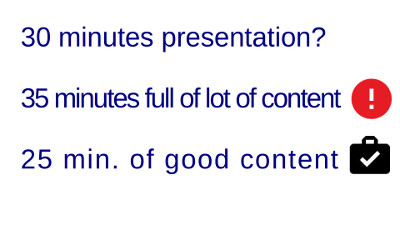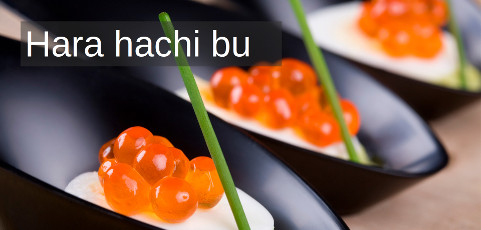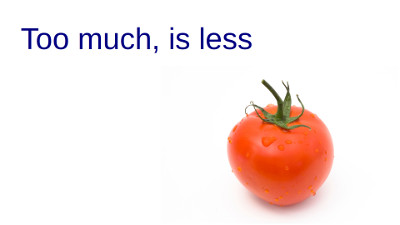Have you ever heard of Hara Hachi Bu? This Confucian principle was not originally meant for public speaking, although it serves it well. Roughly, it means eat until you are 80% full. Do not over eat, leave a bit of room. If you think about it, when you avoid cramming your stomach, you are satisfied by your meal without feeling sleepy or having that “heaviness” on you. For your presentations, you can see it as “Don’t overload your audience with too much information”.
Another way of seeing this comes from an old boss of mine. He used to say, “Tell them more than they expect but less than what you would like to tell them.” Meet their expectations, possibly exceed them, but practice restraint. Most of us tend to over talk, if left to our own devices. We are drawn to always add a bit more. There are many reason behind this: we love the topic, we want to show how competent we are, and so on. But, unfortunately, from the audience point of view, too much is… too much. We said it previously, the audience is king! The amount of content we present should be dictated not by how much we can deliver but, rather, how much they can adequately absorb. So how can you apply Hara Hachi Bu to your presentations?
Again, it’s a broad guideline and there are many ways of doing it but I would like to give you two of them. First, the amount of messages you want to leave to your audience is only one main message. If you manage to persuade them of one idea, that is already a great achievement. Try to put too many and, chances are, they won’t bring home anything. The second is time management: do you have half an hour in agenda? Don’t try to squeeze in 35 minutes of content, but allow for 25 to sit in comfortably instead. Satisfy them, leave them some energy to embrace your speech, and maybe leave them also a bit hungry to get more from you.




Recent Comments